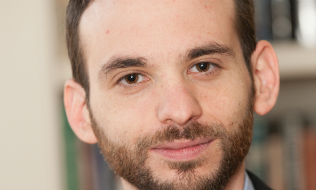
How can search terms help predict elections? Do parents secretly favour boys over girls?
For Seth Stephens-Davidowitz, a former data scientist at Google and the author of Everybody Lies, the answer to these questions isn’t found in traditional polls commonly used in most sectors, but rather in the billions of Google searches people make every day.
Exploring choice and decision-making, his research looks at how Google searches open a window into human behaviour we’ve never had access to before now. Through delving into search terms and big data, he’s discovered and predicted a number of counterintuitive insights that often differ from conventional wisdom.
Read: Learn about new industrial revolution at 2019 Benefits and Pension Summit
Stephens-Davidowitz will share these ideas and more during the closing keynote session at Benefits Canada’s 2019 Benefits and Pension Summit at the Marriott Downtown at CF Toronto Eaton Centre on April 17.
“One problem with traditional surveys or market research is people may lie,” he says. “But on the internet, particularly on Google, people can be really honest. They tell what they’re really thinking, what they really want. So if you ask people, ‘Are you racist?’ very few people say ‘Yes,’ but millions of people make searches for racist jokes. And if you ask people, ‘Are you going to vote in an election?’ Everybody says ‘Yes,’ but this doesn’t predict actual votes. But you can predict who’s going to vote because people who are actually going to vote are going to search how to vote [or] where to vote.”
As for the pension industry, Stephens-Davidowitz says if you ask people what questions they have about pensions, they’re going to want to impress you with smart questions. “But the No. 1 question people have [in Google searches] is, ‘What is a pension?'”
Read: Learn about AI, blockchain at 2019 Benefits and Pension Summit
So what do Google searches tell us about who we are? Stephens-Davidowitz thinks it shows people are darker than they like to let others believe. ”Sometimes it shows us we’re more insecure than maybe we lead on, that people are maybe a little more confused, a little more anxious, a little more in their own head than they may tell their friends or coworkers.”
Where big data is concerned, knowing how to use it properly is simply about asking the right questions, he says. “I think the mistake is just assuming that if you download [something] and you have enough terabytes, if you have enough observations, all your questions are going to be answered. You have to really think creatively about what question you’re looking for so you can find it in that data.”
To attend this session and other DC pension and benefits topics, register for the 2019 Benefits and Pension Summit here.
